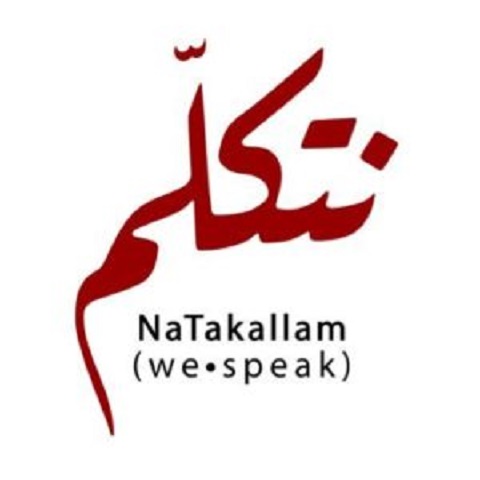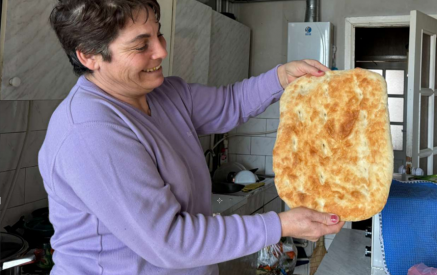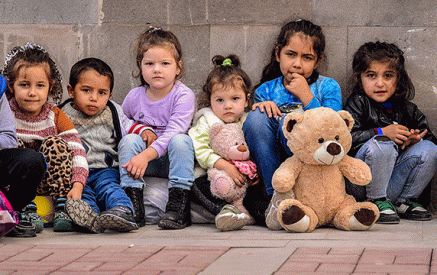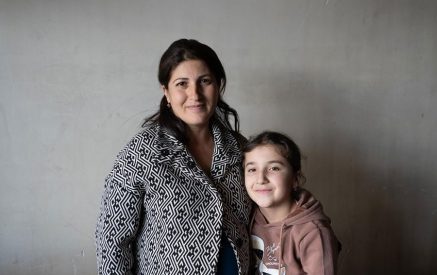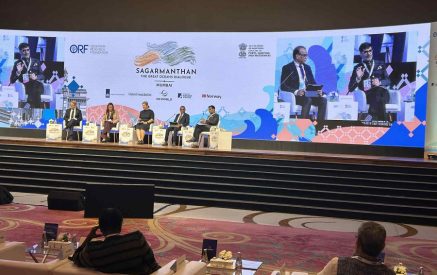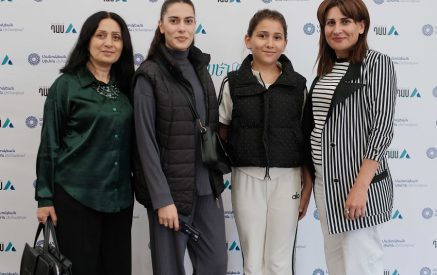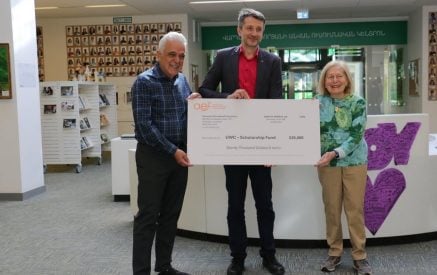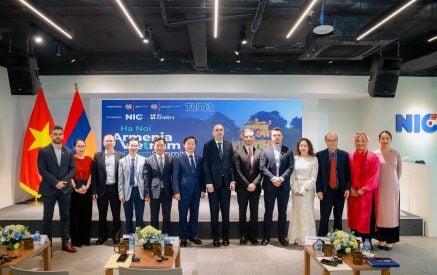Once a week Anahid Dakessian and Adham Smart meet over Zoom to share Western Armenian idioms. Smart, who lives in London, calls his Conversation Partner in Yerevan, who teaches him idioms and slang terms as well as grammar and higher-level vocabulary. “I want [to learn] the stuff that everyone will tell you, «Մաքուր Հայերէն չէ» (“It isn’t pure Armenian”), but everyone actually says when they’re hanging out with their mates or speaking at home,” Smart explained.
In the summer of 2014, Aline Sara was looking for a way to practice her conversational Arabic in her native Lebanese dialect. By this time, the number of Syrian refugees in Lebanon fleeing the brutal civil war had surpassed one million. Refugees face severe economic and legal hurdles to obtaining work and sustaining livelihoods in their host countries. Sara connected her need to practice her Arabic with the need of Syrian refugees to access income and established NaTakallam.
Since 2014, NaTakallam has expanded to offer language learning programs delivered by refugees in Arabic (multiple dialects and Modern Standard Arabic), Persian, French, Spanish, Kurdish, and, most recently, Armenian. Their services include one-on-one and duo language sessions, translation and interpretation, as well as educational programming with schools and universities. By the end of 2020, NaTakallam reached a goal of dispersing one million dollars in direct income to displaced persons.
Read also
“I’m always inspired by Armenian connections [who] are advocating or creating their own ways to give back using the skills that they have,” said Danica Harootian, the head of University and K-12 Partnerships at NaTakallam. NaTakallam, which means “We Speak” in Arabic, works with over 200 K-12 schools and 30 universities, including Yale, Columbia and Georgetown, to implement language and cultural exchange sessions.
Grappling with the pain of witnessing the 44-day war in Artsakh from afar amidst an outpouring of innovative and multifaceted support from the global diaspora, Harootian proposed to her team to add Armenian as a language to NaTakallam’s offerings. At the start of 2021, through collaboration with Repat Armenia and Aleppo-NGO in Armenia, which recommended candidates to its recruitment team, NaTakallam launched Western and Eastern Armenian language sessions.
Anahid Dakessian is one of the Armenian Conversation Partners. Dakessian studied pedagogy and Armenology at Haigazian University in Beirut and worked as an Armenian language teacher and administrator at the Armenian Evangelical Central High School for 30 years. At the start of the pandemic in March of 2020, she and her husband joined their children in Yerevan for what they anticipated would be a two-week interruption from their lives in Lebanon. Subsequent nationwide lockdowns forced them to stay in Armenia for the summer. Their plans to return home were further cast into turmoil after their house in Beirut was partly destroyed by the dreadful August explosion.
“In the beginning we were filled with joy and enthusiasm,” Dakessian said regarding their decision to begin their lives anew in Armenia. “But then the horrible Artsakh War began.”
The war, launched by Azerbaijan’s invasion of Artsakh on September 27, catapulted Dakessian and her family into newfound distress as she and her husband struggled to find work amidst nationwide political and economic crises. At the start of the school year in September, Dakessian began teaching Western Armenian part-time at the Khoren and Shooshanig Avedisian school. When Repat Armenia connected her with NaTakallam, she had the opportunity to supplement her income as a one-on-one language instructor in the new year.
Adham Smart is currently Dakessian’s sole student with NaTakallam. Smart fell in love with the Armenian language while taking courses in Western Armenian at the School of Oriental and African Studies at the University of London, from which he graduated with degrees in Georgian and Linguistics. “I got this amazing sense of resilience and the desire to keep this language going and love for the language,” he enthused. Since then he has worked for the Programme of Armenian Studies and lived in the historically Armenian town of Bourj Hammoud in Beirut for a year as a participant of the Western Armenian Teacher Training Programme. When the pandemic disrupted his work as an elementary Western Armenian language instructor, NaTakallam presented the chance to continue practicing and refining his language skills.
NaTakallam facilitates cultural exchange in recognition of the richness of the Armenian language as a bridge between traditions. Smart, who is of Egyptian and British descent, says that he has found a home in the Western Armenian language standard. “The uniqueness of Western Armenian is that it’s emerging from a Middle Eastern context,” he explained. “It reminds me of Egypt or of Arab culture. People act the same way, often have the same idioms, same sense of humor. It’s familiar, but it’s new at the same time.”
NaTakallam also serves as a resource for Armenians dispersed across the world with tenuous ties to their language and culture to connect with one another and build a digital community. Armenian refugees displaced from Syria and Lebanon living in Armenia, Greece and Lebanon converse over Zoom with students from the United Kingdom, the United States, Germany, Armenia and Canada with disparate levels of proficiency in reading, writing and speaking.
“I just hope that people like me [who started learning Armenian as an adult] or others in the diaspora who are heritage speakers would find this opportunity as a way to connect with an Armenian somewhere else in the world at this time,” Harootian expressed. “But also get to have that personalized language experience on their own, perhaps their own journey after childhood or Armenian school, and depending on how that person uses it in their life, tailoring it to their own goals.”
NaTakallam ultimately cultivates and transmits an endangered language so that it can be used for communication and creative expression within the Armenian community and beyond. Many of NaTakallam’s Conversation Partners have backgrounds in language instruction. Dakessian herself was imbued with a fervent love for Armenian language and literature by her family from a young age. “It is not accidental that our forefathers called the Armenian language the ‘mother tongue,’ and the land, ‘fatherland’,” Dakessian insisted. “When we lost our fatherland, the language became our home. Our language is our only shield to survive as Armenians in the diaspora…That is why I feel that teaching the language has a fundamental role.”
Five years ago Sara established NaTakallam to create income opportunities for people seeking refuge in Lebanon. Today Dakessian and Smart practice Western Armenian far from Beirut, the city that taught them to love the endangered language standard. Through NaTakallam, they speak across borders the language that reminds them of home.




















































